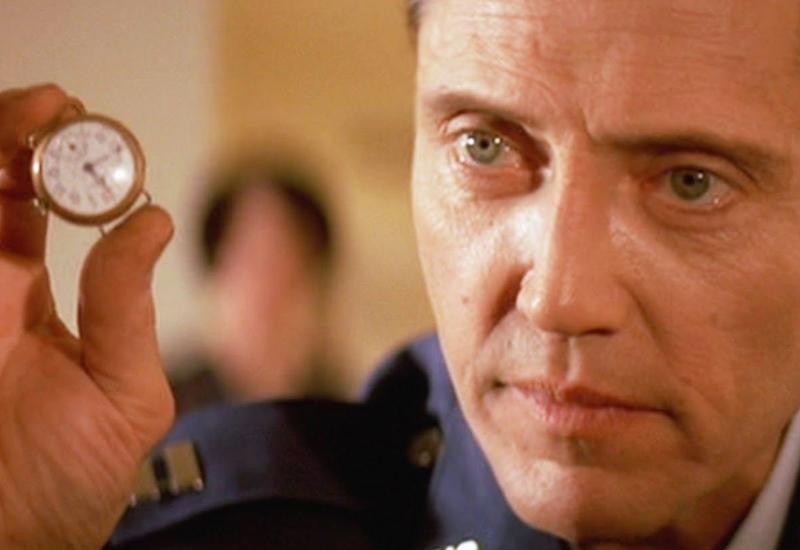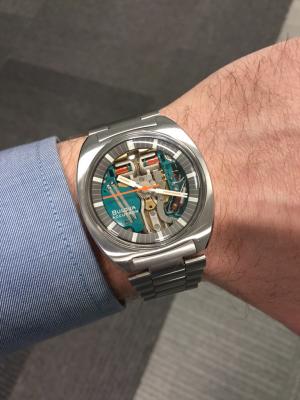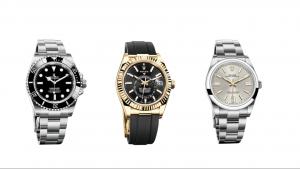Pulp Fiction Watch: What Does It Mean in the Film?

Pulp Fiction, a popular movie written and directed by renowned filmmaker Quentin Tarantino with the help of Roger Avary, remains an icon in the motion picture industry today. Having won the Palme d’Or at the Cannes Film Festival in 1994, it instantly became a silver screen hit.
However, the true essence of the movie still remains a mystery to all. With the paradox surrounding some details in the film, including the briefcase’s contents and the bathroom, the flick proves to be a hot topic up to this day. But above all else, the gold watch is probably the most proverbial element in Pulp Fiction fandom.
This peculiar gold watch that marked the movie’s epic climax stirred many conspiracy theories from avid fans of the film. But, what does it really signify? How important is this watch as a plot device as well as a historical reference?
The Iconic Pulp Fiction Watch
A soon as Pulp Fiction came out, a lot of people hailed the film for its humour and unique storytelling. Moreover, it’s lauded for the clever use of plot devices as well as symbolism that ultimately made the film even more compelling. What stands out the most, at least for us watch enthusiasts, is definitely the gold watch.
It first appeared in the hands of Christopher Walken’s character, Captain Koons. In the scene, Koons visits a young Butch Coolidge (played by Bruce Willis when older) whose father had died in the Vietnam War. Koons leaves behind one last inheritance Butch’s father leaves him — a family heirloom of sorts. Koons then narrates how the Coolidge family first got possession of the watch through humour fled yet heartbreaking monologue.

The Watch Monologue
During the monologue, Captain Koons describes how the watch became an integral part of the Coolidge family. According to him, Butch’s great-grandfather, a private (or lowest ranking soldier), purchased the watch during the First World War “in a little general store in Knoxville, Tennessee” on the day he was about to leave for Paris. He then reveals that Private Doughboy Ernie Coolidge wore that watch every day during the war.
After the war, Ernie Coolidge placed the watch in an old coffee can before bringing it out and handing it over to Dane Coolidge, Butch’s Grandfather, as he is going to serve in the Second World War. The watch was meant to be a good luck gift but Dane, a Marine, died alongside other Marines at the battle of Wake Island. As if knowing his imminent death, Dane asked an Air Force gunner “to deliver to his infant son, who he’d never seen in the flesh, his gold watch”. After the war, the gunner handed over the watch to Dane’s family, entrusting the watch to Butch’s father.
According to Koons, the watch accompanied Major Coolidge (Butch’s father) as he was captured and sent over to a Vietnamese prison camp. To keep the watch from being confiscated, Major Coolidge hid it at a certain spot for five years. Dying of dysentery, Coolidge handed over the watch to Captain Koons who later hid the watch in a similar hiding spot. After the war, Koons returned home and delivered the watch to its rightful owner, Butch Coolidge.

Setting Up a Climax
The purpose of the watch, albeit obscure, dictates the rest of the story that unfolds not only for Butch but also for Vincent Vega (John Travolta), and Marsellus Wallace (Ving Rhames). After the monologue, we cut to Butch on his long-awaited boxing match where he wins, ultimately betraying the match-fixing scene he had with Marsellus in the first part of the film.
Later, Butch runs for his life together with his French partner, Fabienne, staying at a cheap motel for safety. On the day the two are supposed to leave LA, Butch comes to a horrific realization that Fabienne forgot to pack his father’s gold watch. Soon after, Butch flies into a rage before risking his life to retrieve the watch from their old apartment.
The gold watch ultimately becomes the main reason why Butch clashed with his enemies along the way. Firstly, he runs into Vincent who he dispatches in the bathroom. Then, with the watch strapped around his wrist, Butch accidentally runs into Marsellus at a traffic light. From there, the two end up becoming prisoners at a pawnshop by Maynard and Zed. As Zed later chooses to sexually assault Marsellus, Butch managed to set himself free. While he can easily run away, he takes a Katana instead, killed Maynard, and helped Marsellus. This later allows Marsellus to shoot Zed with a shotgun.
The two later comes to an agreement that Butch stays out of LA with Marsellus no longer on his tail as long as no one knows of the assault. Changed and reborn through the incident, they both moved on with their separate lives. All this happened because Butch decided to risk his safety for the single greatest possession of his life — his father’s gold watch.
Theories About the Pulp Fiction Watch
If you scour the whole Internet on the significance of the Pulp Fiction watch, you might find out that everyone has their own unique interpretation of it. Most people would refer to the watch as the core of Pulp Fiction’s overarching theme — time. As the movie progresses, everyone seems to always run out of time.
With Mia’s overdose, Marvin’s death, and of course Butch and Fabienne running after their 11 o’clock train, time always seems to run out. And when everyone else appears to grasp time on their hands (with Vincent and Jules waiting until it’s time to enter Brett’s apartment), it always presents as a time for reflection and realisation.
So far, a lot of theories have surfaced about the watch being a symbolism of karma with its owner only deserving of its possession and if a good deed is done. With his forefathers possessing the watch during a battle for freedom, Butch carries a heavy burden in himself to do just the same. The watch’s symbolism comes in full circle when Butch decided to come back and save Marsellus from Maynard and Zed.
The watch also became a symbol of luck for many. In the movie, the watch helped Butch’s great-grandfather survive World War I. While his grandfather kept the watch away for his son just three days before his death, it’s fairly upsetting to say that without it, he clearly would not survive. The same applies to Butch’s father who gave the watch away as he died of dysentery.
To this day, the true meaning of the Pulp Fiction watch remains obscured so as the contents of the briefcase. And that’s what makes Pulp Fiction a hot topic on forums to this day.
Watches During the War
Watches hold a great deal during the era of war. At the time, most armed forces commission watch brands to develop and produce military watches for their troops. However, this doesn’t negate the story of the watch from Pulp Fiction.
During the First World War, wristwatches were merely referred to as jewellery for ladies. But with time becoming a winning essence of war, a lot of soldiers were required to carry one during the battles. These wristwatches were mostly used for coordinating charges or calculating fire of artilleries. However, their wristwatches at that time proved impractical since its winding mechanism is fairly off-centre. Because of this, soldiers started soldering lugs to their watches and attaching leather straps on them. This gave birth to trench watches.
The Lancet Trench Watch
These watches combine the traditional pocket watch but with a protective case that guards the timepiece against shrapnel. After the birth of trench watches, wearing wristwatches finally became a fashion fad for men. As a matter of fact, the Pulp Fiction gold watch is also a trench watch from the brand Lancet.
Made around 1914-1918, the watch comes in a particularly small size measuring around 25mm across without the winder. This watch is modestly equipped with a hand-winding movement with 15 jewels. The watch also has a white dial.

The Evolution of Military Watches
As wristwatches, specifically, the trench watches, emerged as a popular choice for many people, companies like Rolex and Gruen began manufacturing their own versions of it. By the time the next world war ensued, military watches improved to greater standards.
With the patriotism that comes along with these military watches, a lot of people, especially wealthy men, showed high spirits in acquiring such revered timepieces. Up to this day, military watches remained a huge part of the industry. There’s still a number of watch companies that continue to create historical timepieces that bear the same aesthetics as its predecessors, while others opt to improve on the overall look and performance.
The Watch that Won the War
One of the most iconic watches that accompanied troops during a war is the A-11. This watch, produced by Elgin, Waltham, and Bulova, comes at 30mm – 32mm diameter, with several iterations made for the US Military standards. A-11 comes with a black dial, white numbers, and white hands. This made the watch more readable in various conditions. Originally utilized by the aerial corps, the watch was also issued to the Infantry and ground corps. Soon enough, it became the watch that almost every military personnel wore. The A-11 became so popular that people often referred to it as “The Watch that Won the War”. Today, MkII offers a modern version of the watch called the Cruxible.
Subsequently, military watches started to possess a common aesthetic with a simple dial. From a plain black dial to Arabic number indexes, military watches swear to provide only the necessary details possible. While others add a chronograph function on their models, a part of their design DNA always refers back to the vintage watches from the First and Second World War. For instance, the Hamilton Khaki Field carries this classic DNA even with their newer releases. Meanwhile, Bell & Ross continues to release watches as a nod to vintage military watches. But the twist? Their watches carry modern technology such as chronograph movements.
Heroism in History
While there are several things Tarantino and Avary may use as symbolism in the movie, the gold watch proved to be a true standout. Every character in Pulp Fiction has what you may call an Achilles’ Heel of sorts. For instance, the bathroom proved to be Vincent Vega’s Achilles’ heel many times over. One instance is when he left Mia unsupervised leaving her to overdose, and another occasion is when he’s unarmed in Butch’s apartment, allowing Butch to kill him with his own gun.
On the other hand, Butch did exactly the same for his father’s gold watch. He proved himself as a careful, calculated character who loves the specificity of things. This reflected the purpose of the watch that his father left him. Moreover, his father, Major Coolidge and Captain Koons leaned on each other with Koons even referring to them as the people who are “a certain responsibility of the other”. At the time of war and other life-threatening situations, the watch served as a reminder for the Coolidge men to take responsibility for their comrades.
Butch earnestly followed this path as he saves Marsellus and in return earning the freedom he so deserves. A lot of people like to refer to this act as his own way of proving that he, too, deserves the watch. And when Fabienne said she wanted a potbelly, people took this as a sign that she knew she was pregnant and therefore carries the child who will inherit the watch from Butch.
This doesn’t steer away from the very watches that marked our own history. Military watches carry with them the stories of war and conflict, as well as tales of brotherhood, hope, and life. Just as in the movie, the watches from our history holds a great depth that is widely recognised by major watch brands as well as many avid watch enthusiasts.
As military watches continue to evolve, the world continues to do the same. And as we face new dawn in our history, we begin to understand that what watches do is mostly reminding us of the significance of time. They give us the idea of how long we have and how much we’ve lost in life. What we do to the time we have left is all up to us at the end of the day.
Want to learn more about iconic movie watches? Check out the stories behind the watch from Interstellar and John Wick.


